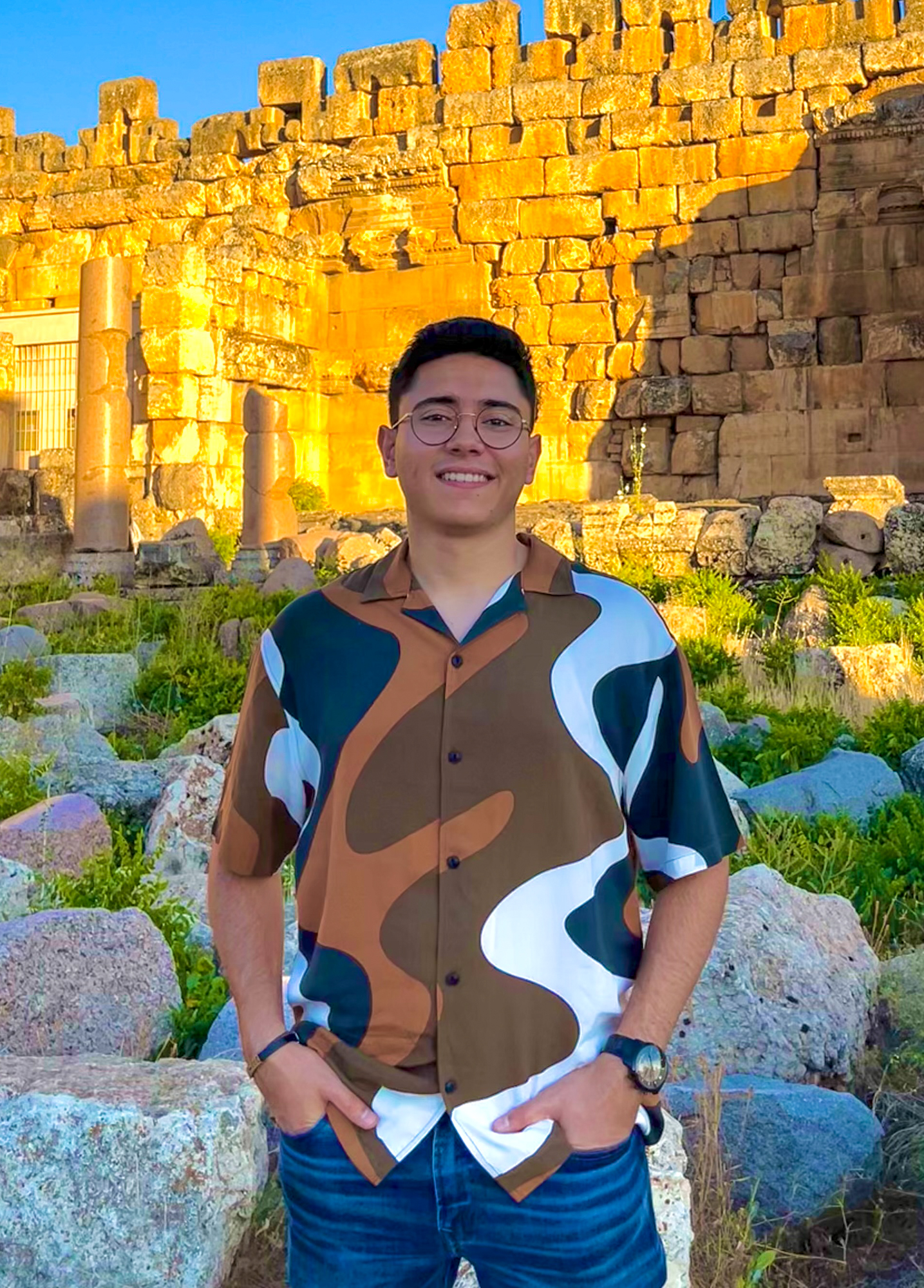Convocation Spotlight: MSc '24 grad Constantin Mouzaaber
19 November 2024

MSc in medical sciences grad Constantin Mouzaaber. Photo supplied.
Constantin Mouzaaber is graduating with a master’s in medical sciences, specializing in ophthalmology and visual sciences. He previously earned a BSc in general sciences with a biological sciences major and a business minor at the University of Alberta.
Originally from Aleppo, Syria, Mouzaaber shares what drew him to ophthalmology and visual sciences, what he has already accomplished in this field, and what he plans to do next.
What drew you to this area of study?
My initial interest in optometry led me to participate in undergraduate vision research. Shortly after starting, I realized that my modest research capacity at the time could yield novel scientific findings! After completing my project successfully, I wanted to keep going. Securing an NSERC summer studentship also motivated me to pursue graduate studies.
What are you most proud of from your time in the program?
I am most proud of the moments when I had the privilege of presenting my research findings to my University of Alberta mentors and international subject experts. Sharing my research with them and demonstrating to myself that I truly am the expert on my project was incredibly rewarding.
How did you stay motivated when things got tough?
I consider myself fortunate to have had the chance to undertake a world-class research project that aligned perfectly with my interests. I generated eye cells from patient-derived skin cells to better understand an inherited vision disorder. My intrinsic motivation to conduct experiments was complemented by the creative freedom I was granted. My supervisor, Dr. Matthew Benson, provided unwavering support and his constant encouragement, particularly when troubleshooting experiments, contributed immensely to the success of my research project.
Did you receive any awards or scholarships?
I am fortunate to have received a graduate recruitment award, generous CIHR (Canada Graduate Master’s Scholarship) funding, the Walter H. Johns Graduate Fellowship, the Alberta Graduate Excellence Scholarship, the Department of Ophthalmology and Visual Sciences Award in Precision Medicine, and the Sigma Xi Grant in Aid of Research.
Did you have any exceptional experiences?
During my undergraduate degree, I had the privilege of participating in a summer research internship at the University of Aachen in Germany. I discovered that being proficient in English and French significantly simplified the process of learning German (and that 7 a.m. language classes are not for me).
Competing at the University of Alberta 3-Minute Thesis (3MT) and Falling Walls pitch competitions during my graduate degree taught me how to deliver scientific information effectively to a general audience. I learned that spending time on the stage days ahead of the competitions helped me better control my nerves.
What were your go-to spots on campus?
My lab’s location on the 7th floor of Katz was difficult to beat! I spent most of my time there because it was convenient and quiet most of the time.
What advice would you give to a student thinking of entering this program?
I would like to remind prospective students that they will likely be the first in the world to capture biological phenomena related to their research projects. Many aspects of the field remain unexplored. I would also advise them to contact my exceptional supervisor as soon as possible because he is currently recruiting students!
What comes next for you?
As the first student graduating from my lab, I am proud to have, along with my supervisor, laid the foundation for national and international collaborations. After successfully generating the world's first human-derived peroxisome-deficient retinal cell model, I will next attempt a promising gene therapy intervention to restore healthy cellular function, bringing the treatment closer to clinical trials.